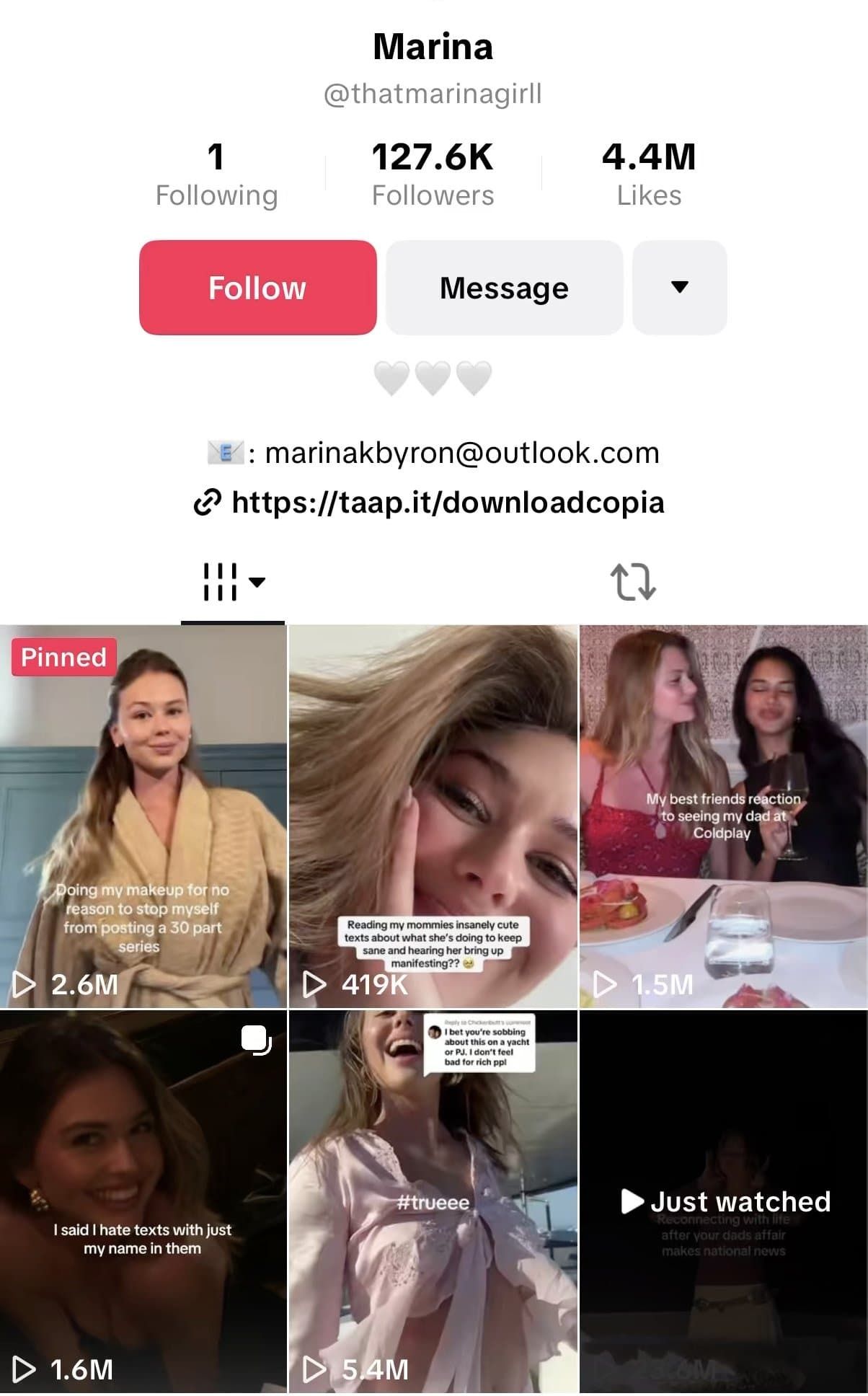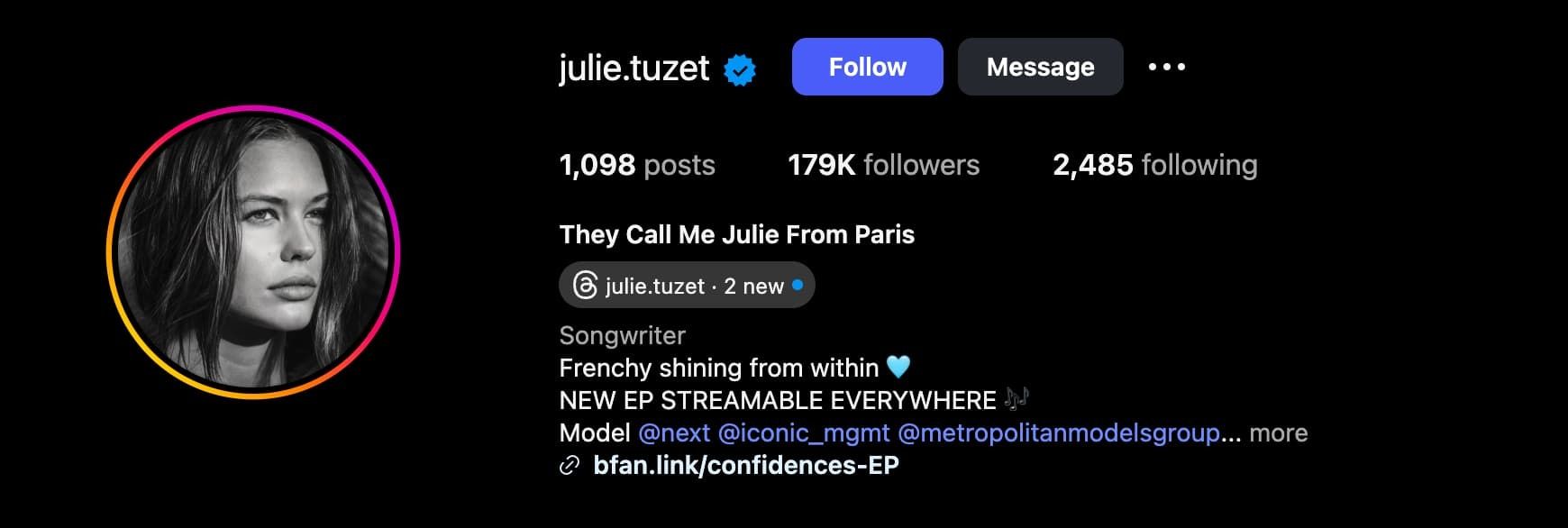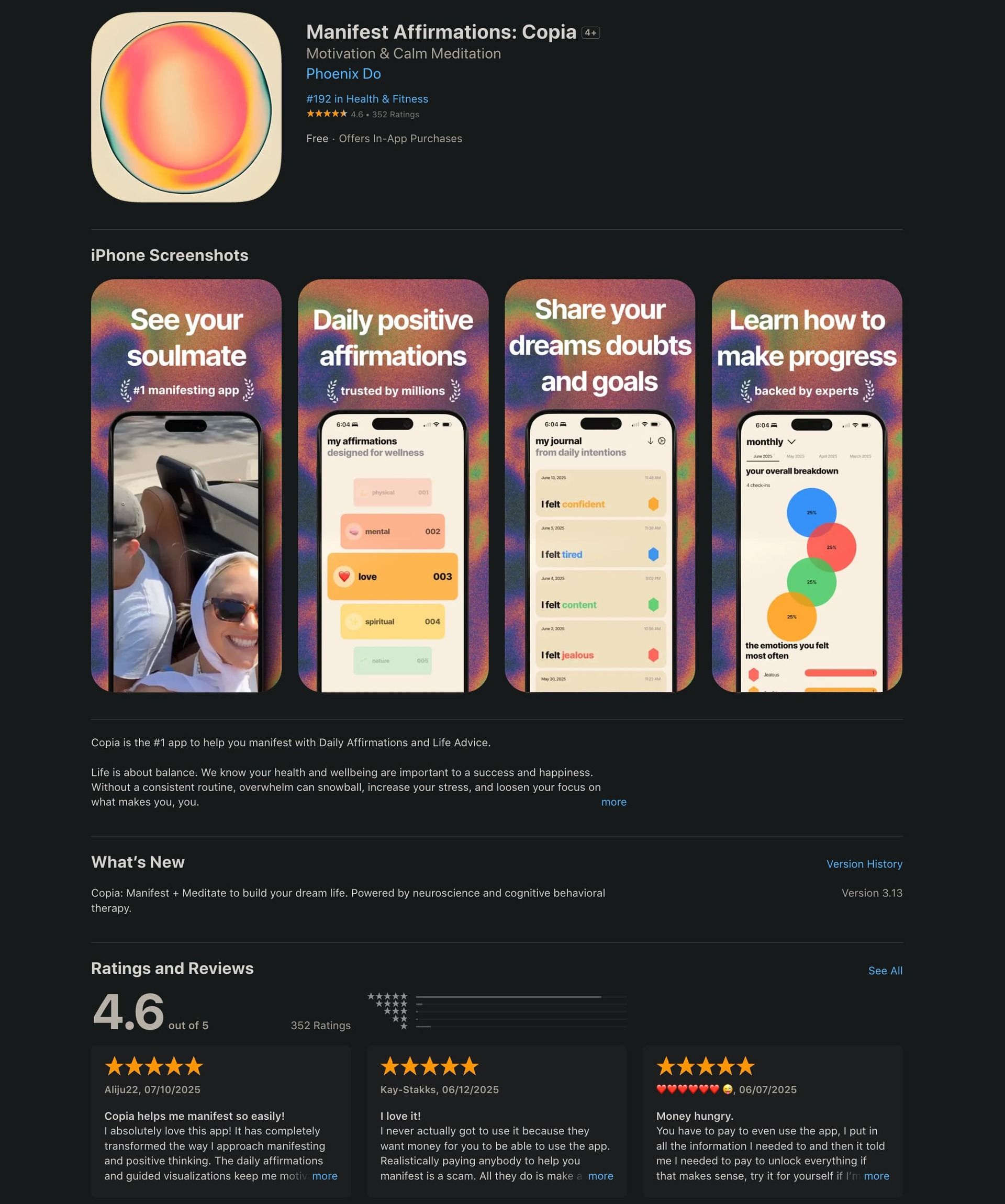- Startup Spells 🪄
- Posts
- Astronomer CEO TikTok Scandal: How a Catfished Heiress Went Viral to Boost a Meditation App
Astronomer CEO TikTok Scandal: How a Catfished Heiress Went Viral to Boost a Meditation App
PLUS: OpenAI Agent mode, what are YOU doing with it?
Astronomer CEO TikTok Scandal: How a Catfished Heiress Went Viral to Boost a Meditation App
TikTok’s For You page recently handed the spotlight to a woman claiming to be “Marina Byron,” the daughter of Astronomer CEO Andy Byron.
Her account, @thatmarinagirll, quickly racked up over 127,000 followers and tens of millions of views—largely from heartfelt videos about her supposed parents’ divorce, her emotional recovery journey, and casual luxury-laced posts from yachts and candle-lit dinners.

Astronomer CEO's Fake Daughter
But here’s the twist: Andy Byron doesn’t have a daughter. The woman in the videos is actually French singer Julie Tuzet, who posted on her Instagram stories warning that someone had stolen her content and built a fake persona around it.

Julie Tuzet
Luxury Footage + A Tragic Backstory = Trust on Autopilot
The account’s success wasn’t just luck. It weaponized TikTok’s preference for high-quality, emotionally charged content.
By using real, polished videos of someone who already lives a glamorous life, the profile avoided raising suspicion.
Adding small touches like an Outlook email in the bio ([email protected]) helped complete the illusion. These subtle signals made the profile feel personal, approachable—and most importantly—believable.
The narrative was simple and effective: a wealthy girl torn between two parents. Emotional pain mixed with privilege. Viewers love a story they can “help” fix.
Sympathetic comment sections snowballed. People sent messages of support. They followed and shared her videos to “help her monetize” the pain.
This phenomenon is classic parasocial attachment—the audience feels like they know her. So they interact more, which tells TikTok’s algorithm to push it further.
In 2018, a black woman tricked Trump supporters into paying for her college degree ($150k) by sharing her GoFundMe link by faking that she had been kicked out by her parents for being a MAGA supporter.
Masked Links in Link in Bio Leads to a Meditation App
Beneath the surface, this was all about one thing: monetization.
The masked link in bio—taap.it/downloadcopia—silently redirected to an iOS app called Manifest Affirmations: Copia.

Meditation App - iOS App Store
Copia offers daily affirmations and wellness journaling for a $49.99/year subscription. The tie-in with the fake narrative was brilliant: “Marina” was healing from her trauma—and so can you. It’s emotional storytelling paired with a frictionless funnel.
Even a 1% conversion rate on multi-million-view exposure could result in hundreds of thousands in revenue.
Many people assume content goes viral on merit alone—but experienced marketers know better.
Record labels, for example, often own massive meme pages across TikTok and Instagram. These pages are used to quietly push songs or products into public consciousness.
A great example is @daquan, which has over 16 million followers. It’s not just a meme page—it’s an engine. Entire songs, personalities, and trends have launched off the back of placements on pages like this, with millions never realizing they’re watching paid marketing in disguise.

@daquan - Instagram Meme Page
This fake heiress stunt reveals just how powerful emotional storytelling and identity cues are in the attention economy. It’s a near-perfect example of growth hacking through:
Visual trust bias (high-quality lifestyle footage)
Sympathy bait (a relatable emotional arc)
Stealth monetization (a veiled product tie-in)
It also shows the fragility of modern platforms. TikTok’s systems weren’t built to verify identities before pushing content to millions, and app stores aren’t incentivized to intervene when installs are surging.
Note that the stunt violates identity‑theft statutes in multiple jurisdictions and ticks every box on TikTok’s Synthetic Media Misinformation policy. Victims—Andy Byron, Julie Tuzet, and misled subscribers—retain grounds for civil action.
It is, however, a perfect example of how AI UGC can be used to tell such stories on the internet.
Top Tweets of the day
1/
Im shocked at all the wrong answers.
Left: look what THIS thing does
Right: look what OUR thing does
Tale as old as time.
People dont like being pitched. But they love finding someone like them, with their problem, who found a solution
— John Cocktosen (@indiewhacker)
2:15 AM • Jul 12, 2025
Love this breakdown of an ad.
2/
signatures to look for in ai writing -
> "it isn't just x, it is y"
> narrative-philosophical-poetic section headings "The XYZ - A Journey of ABC"
> overuse of symbolism and lofty adjectives - "stands as a testament", "plays a vital role", "underscores its importance"
>— tokenbender (@tokenbender)
7:52 AM • Jul 23, 2025
Good way to avoid AI slop in writing. Need to up my game.
3/
The Sydney Sweeney Economy is booming.
Dr. Squatch—
• Launches Sydney Sweeney bathwater soap
• Bought by Unilever one month laterAmerican Eagle—
• Launches Sydney Sweeney ad campaign
• Shares pop 11% at the open
• Adds $200 million in market cap— Morning Brew ☕️ (@MorningBrew)
2:59 PM • Jul 24, 2025
Sydney Sweeney is the current thing so these companies are doing the right thing by associating with her. She's a rare celebrity with dual-gender appeal (young women idolize her style; young men adore her for different reasons.)
What would explode this if she partners up with the most perfect overlap of Sydney Sweeney fanbase.
A few business she can partner up with that I got from o3-Pro Deep Research:
Lingerie & Fashion Line
Gen-Z Focused Makeup Brand (e.g. a ColourPop or MAC Collaboration)
Beverage Collaboration (e.g. Liquid Death’s “Sydney Sweeney Bathwater” Edition)
Influencer-Driven Fashion Retail (e.g. Revolve or Abercrombie & Fitch)
Rabbit Holes
Personalized AI Language Education — with Andrew Hsu, Speak by Latent Space
Agent mode, what are YOU doing with it? by /r/OpenAI
Amazon’s Product Pages: B2C Copy Techniques That Get Conversions by Brooks Lockett
What’d ya think of today’s newsletter? Hit ‘reply’ and let me know.
Do me a favor and share it in your company's Slack #marketing channel.
First time? Subscribe.
Follow me on X.
Reply